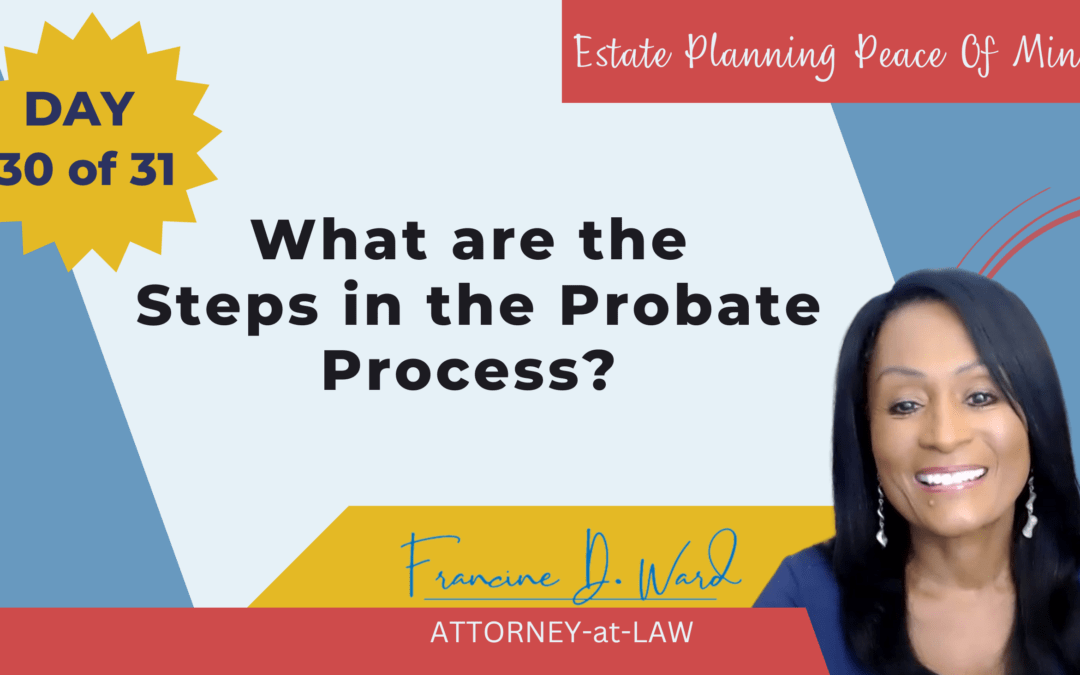Probate Process
Probate process basic steps. When someone passes away, their estate is generally required to go through probate unless there was a valid trust in place. It is a lengthy and often expensive process. Expensive not just in terms of the financial cost, but the emotional cost as well. And depending on the parties involved, the emotional cost could be even greater.
There are a few exceptions to an estate being required to go through probate—when the estate is small or midsized. The definition of what is deemed “small” or “midsized” is determined by the state. Each state has its own probate law.
What is Probate?
Probate is the judicial process by which a decedent’s assets are distributed to their designated beneficiaries. Each state has its own laws regarding probate and how estates are to be administered. A court oversees the process.
When someone dies with a will, the law says they died “testate.” The will then governs how they assets are distributed. If there is no will, the decedent died “intestate.” In that case, intestate succession rules govern.
The Basics of the Probate Process:
- The first thing to happen is someone dies.
- Presuming the decedent died with a will, the loved one needs to find the will. That is not always a simple act. If the loved one was made privy to the location of the estate documents, then this step is easy. But more often than not, locating the will is a challenge. Perhaps it’s hidden or in a safety deposit box and no one has access. Finding the will is essential. If no will is found, the estate is administered intestate.
- Assuming there is a will, the person named as executor or personal representative must complete the appropriate paperwork and submit it along with the will to the probate court.
- If no executor is nominated, the court appoints one.
- That executor is responsible for winding up the deceased person’s affairs, paying bills, filing tax returns, and making distributions to beneficiaries. The executor may also be required to post a bond
- The executor secures all valuables, collects the mail, creates a list of everything the deceased person owned, and files it with the court, sending copies to the interested parties.
- Lastly, the executor submits paperwork to the court to close the administration.

Francine D. Ward
Attorney-At-Law, Author, Speaker
Follow Francine:
Don’t miss Francine’s Latest Blogs:
- Sweepstakes ScamsSweepstakes Scams. The Federal Trade Commission (FTC) has settled with several operators of a sweepstakes scam. The scam bilked consumers out of millions of dollars. Included in the settlement agreement,… Read more: Sweepstakes Scams
- Incapacity PlanningIncapacity Planning. Incapacity is an unexpected wrinkle in your estate plan. I am a planner. I make plans, I like making plans, and sometimes my plans go awry. Despite any… Read more: Incapacity Planning
- Publishing contractsPublishing contracts The publishing contract is an agreement that defines the relationship between an author and her publisher. Publishing contracts typically contain elements that speak to territory, rights, ownership, financial… Read more: Publishing contracts
- What is a Habit?As we enter springtime, you may feel far away from your New Year’s resolution. That may be because of the success rate of NYE resolutions. In fact, January 17 is… Read more: What is a Habit?
- Common Contract MistakeCommon Contract Mistake #1. Not Having Written Agreements with EVERYONE You Do Business With. Common contract mistake. Without question, the most common contract mistake is not having the terms of… Read more: Common Contract Mistake











